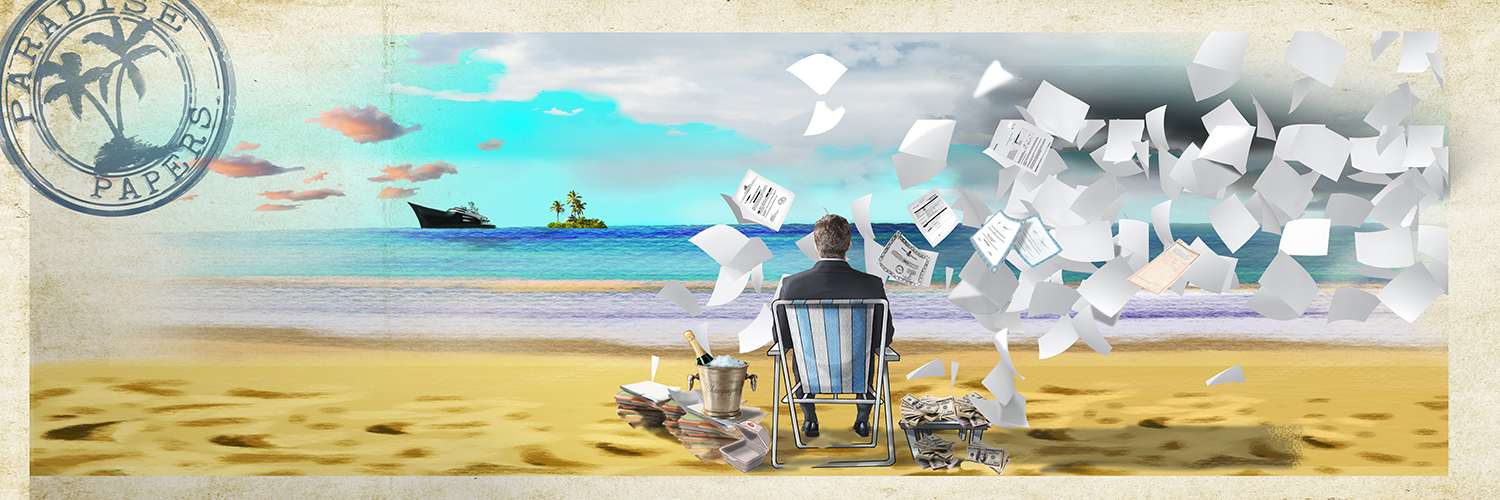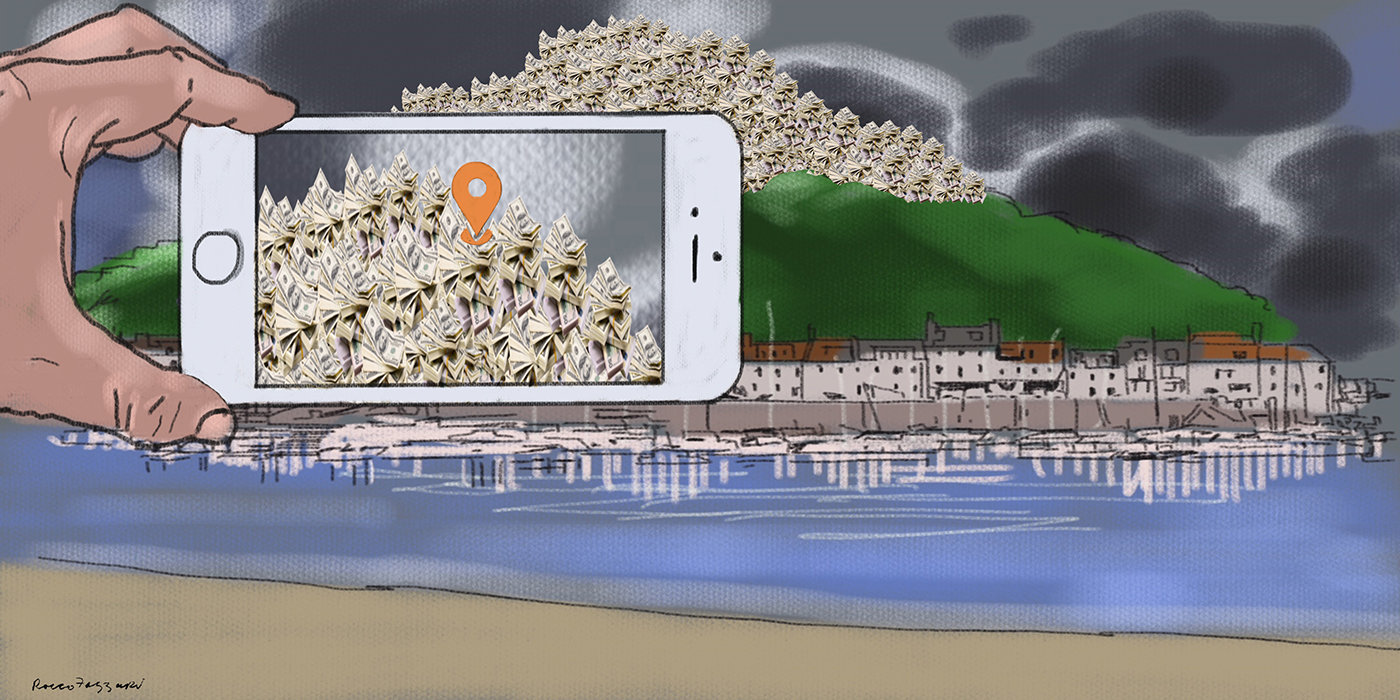What is the Paradise Papers?
The Paradise Papers is a global investigation into the offshore activities of some of the world’s most powerful people and companies. The ICIJ and 95 media partners explored 13.4 million leaked files from a combination of offshore service providers and the company registries of some of the world’s most secretive countries. The files were obtained by the German newspaper Süddeutsche Zeitung.
What is in the Paradise Papers data leak?
The Paradise Papers documents include nearly 7 million loan agreements, financial statements, emails, trust deeds and other paperwork from nearly 50 years at Appleby, a leading offshore law firm with offices in Bermuda and beyond. The documents also include files from a smaller, family-owned trust company, Asiaciti, and from company registries in 19 secrecy jurisdictions.
Why do the Paradise Papers matter?
The Paradise Papers files expose offshore holdings of political leaders and their financiers as well as household-name companies that slash taxes through transactions conducted in secret. Financial deals of billionaires and celebrities are also revealed in the documents. The Paradise Papers files include far more information about U.S. citizens, residents and companies than previous ICIJ investigations – at least 31,000 of them.
Who worked on the Paradise Papers?
ICIJ collaborated with more than 380 journalists working on six continents in 30 languages. Many team members spent a year using online platforms to communicate and to share documents. Journalists tracked down court records, obtained financial disclosures of politicians in Africa, Europe, and Latin and North America, filed freedom of information requests and conducted hundreds of interviews with tax experts, policymakers and industry insiders.
Why didn’t ICIJ publish all the Paradise Papers files?
We are an investigative journalism organization and, as such, we report stories that are in the public interest. The Paradise Papers expose significant failures and weaknesses inside the offshore industry. Those stories and others we are pursuing serve the public interest by bringing accountability to the offshore industry, its users and operators.
Other parts of the data are of a private nature and of no interest to the public.
ICIJ will not release personal data en masse but will continue to mine the full data with its media partners.
Will ICIJ at least publish a database of people and companies?
Throughout November and December, ICIJ will release the names of tens of thousands of offshore entities incorporated by Appleby, Asiaciti and corporate registries and the people connected to them (as beneficiaries, shareholders or directors).
The names – with links to 180 countries – will be added to the Offshore Leaks database (published in 2013), which already contains more than 340,000 companies that ICIJ obtained in previous leaks.
Sign up to our mailing list to be the first to know when ICIJ will release updates to its database.
Will ICIJ share documents from the Paradise Papers with governments?
The long-standing policy of ICIJ is not to turn over such material.
The ICIJ is not an arm of law enforcement and is not an agent of the government. We are an independent reporting organization, served by and serving our members, the global investigative journalism community and the public.
Should I assume that everyone that appears in the Paradise Papers is involved in tax avoidance or evasion?
No. There may be legitimate reasons to create a company in an offshore jurisdiction. Many people declare them to tax authorities when that is required.
How can I join the investigation?
ICIJ welcomes the opportunity to grow our collaborations with media partners, especially from countries where the Paradise Papers have not yet been explored.
This is not easy data to understand. It took great commitment from all of our current media partners to find stories of important public interest. ICIJ provides training to partners to ensure that everyone understood the intricacies of the information they were reporting on.
If you are a journalist and want to partner with us send us an email.
How does ICIJ pick its reporting partners?
ICIJ is an independent network of more than 200 investigative journalists in more than 65 countries who work together of issues of global significance. Sometimes we go to our members with an idea for a project and sometimes our members come to us with their ideas or data.
For the Paradise Papers investigation, ICIJ members Bastian Obermayer and Frederik Obermaier from the German newspaper Süeddeutsche Zeitung shared the files they had obtained with ICIJ so we could organize a global investigation.
We are constantly working with journalists and media organizations that are not part of our network, for example in countries where we haven’t done work before.
What do we seek in our partners?
- Journalists with a proven record in investigative reporting.
- Media organizations that support “slow,” deep-dive investigations.
- Journalists who are team players and are willing to share their work with other colleagues around the world.
- Generally nice people (life is short!).
How do I get in touch with ICIJ if I want to share a tip or documents?
There are a number of ways to contact ICIJ, depending on the nature of your message or the material you would like to share.
ICIJ also uses PGP encryption: our public key can be found on the MIT PGP Public Key Server (fingerprint: 986A 572D 3B95 BD42 331E 839A B532 F18C 2A17 696B); our email address is contact@icij.org.
You can see all of the ways you can anonymously leak to ICIJ on our leak page.
Who funds ICIJ?
ICIJ is a non-profit organization. We rely on charitable foundations and on financial support from the public. Unlike other non-profit organizations, we do not take funding from governments. Without our readers’ support, we cannot exist.
Recent ICIJ funders include: Adessium Foundation, Open Society Foundations, The Sigrid Rausing Trust, The Ford Foundation, Fritt Ord Foundation and the Pulitzer Center on Crisis Reporting. We also receive support from Australian philanthropist Graeme Wood.
We welcome individual donations in support of our work.
Still got a burning question? Email us and we’ll try and answer it!



